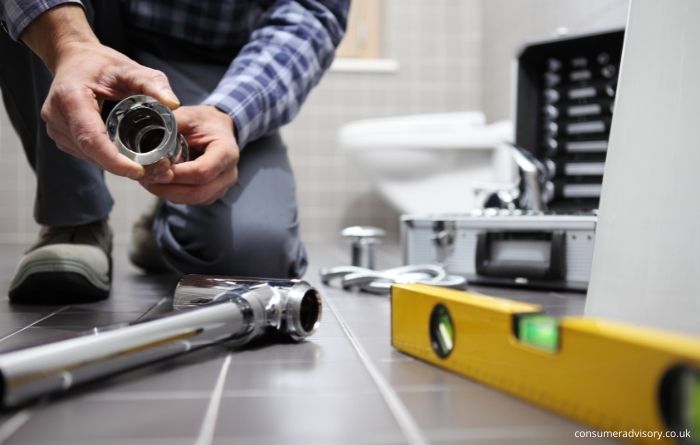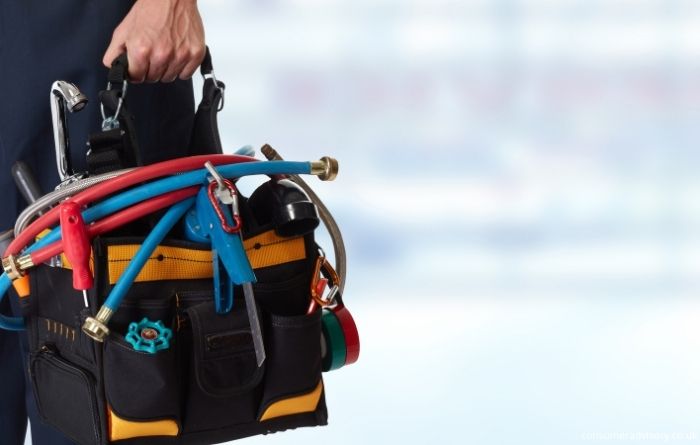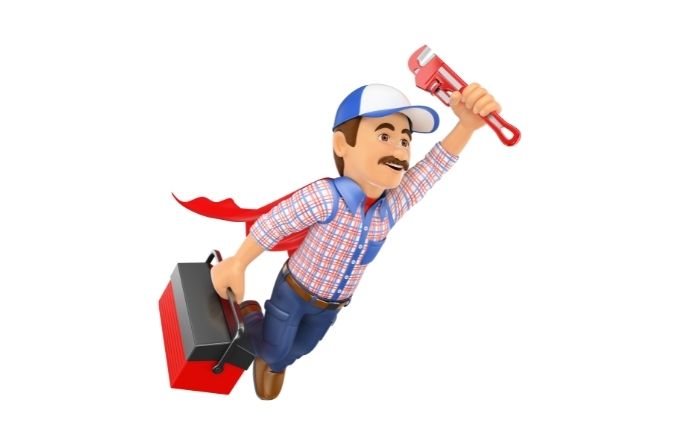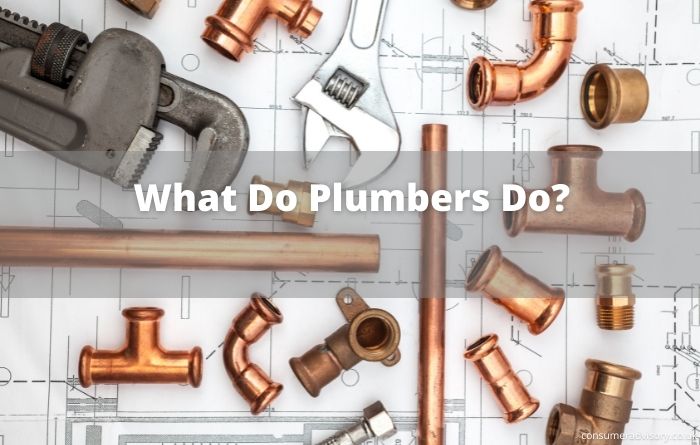What do plumbers do? Plumbers install and maintain plumbing systems throughout buildings including toilets, bathtubs showers kitchen sinks, washing machines and dishwashers. They can also install central heating systems but require additional qualifications to use gas boilers. Plumbers often replace outdated pipework, service older systems diagnose and repair damage and might respond to emergency calls when pipes are damaged.
What is a Plumber’s job like?
A day in the life of a plumber can sometimes involve answering a call during the night from a frantic customer with cracked pipes or may involve working on an architect’s firm or a construction site.
Most plumbers are self-employed or work in a small business employing less than ten people. Many large buildings employ their own staff such as school districts, colleges campuses airports and municipalities.
It is a large employer for plumbing and related trade skills through a military background is not necessarily requisite. Even motor vehicles such as buses, recreational vehicles, large aeroplanes, yachts and cruise ships will need plumbing installations.

Plumber working hours
Plumbers are most effective at meeting customers when they are working hard on it therefore there is a job requiring the most communication skills.
Although it’s strictly a 40-hour-per-week job, many plumbers work overtime. Training as a heating engineer opens doors or you could help serve the growing demand for green technology such as solar heat systems and rainwater harvesting.
Alternately you may choose to pursue a career in further education as a tutor or assessor. Remember that in situations of emergencies you get to work as and when it’s required. You can arrange your own hours of work if you want easier times.
Career path and progression
You may be able to specialise in a certain area of plumbing including water drainage, air conditioning or ventilation. If you work in a large team you could develop to be a team leader or senior manager.
You could study for a Higher National Diploma or a degree in engineering.
This should provide career options for building services engineering and other construction jobs. Sometimes plumbers become local tutors to develop themselves or to give back through their work experience.
You could be a subcontractor or independent working for yourself. You can also become a subcontractor in a broader organization.
Education, Training and Certification
Most plumbers obtain their training through an apprenticeship that combines class instruction with paid on-the-job training.
Apprenticeships in manufacturing are administered through unions and employer companies and usually last between two and five years. Most US states require a license to work independently of one another depending on its source.
A high school or equivalent diploma is required and you have to have aged 17 or older for acceptance to a college program. It is also required by law that all plumbers must have the required license in addition to 2-3 years of experience.
Duties and responsibilities of a plumber
It’s very hard to find a plumber. Every day will include a new job, a new client and a new environment. Plumbers can also work in commercial locations where they will be responsible for making sure pipes are laid properly during building phases.
Plumbers and other professionals in the field of plumbing play a vital role during emergencies. They will often be called out to resolve issues that arise at home, such as leaking pipes or fixing broken appliances.
Some people may find themselves in an emergency situation because their plumber was not available when they needed them most; this could happen even if it wasn’t planned for (e.g., late-night calls).
How do I become a plumber?
You can acquire qualifications that are required by taking college courses or becoming an apprentice.
If you have prior experience you can apply directly to an employer or train at your job. Y
ou should explore these routes in order to know which ones are best for you. Many employers are more interested in those who are excited to learn and are able to follow instructions. Y
ou might require a Construction Skills Certification Scheme (CSCS) card to work on construction sites. You can get even a CSCS card from a construction business to work in the construction industry.
There are also training courses that are open to leavers of the armed forces, these are also open to the general public and can be found in places online such as Quest Online.
If you would like your plumber training course to be listed here please get in touch with us.
What qualifications do I need to be a plumber?
To be a registered Plumber you must also have Three GCSE-level A or C in maths, English or science.
To become gas engineer you also have to have ACS accreditations in the relevant field (gas furnaces cookers and hobs central heating boilers etc.) and be registered for Gas safe testing.
To be admitted on an apprenticeship you will have everything below plus a new GCSE in another subject.
However, there are now courses that you can turn to and train either by attending a course (perhaps residential) or via correspondence coupled with classes. This has now become quite a popular route of entry.
Are you suited to be a plumber?
Plumbers tend to be independent, stable, persistent genuine, convenient and functional. They prefer tasks that are physical, tactile, athletic or mechanical. Some are also investigative, i.e. they are intellectual, introspective and inquisitively.
The hardest part of being a plumber
Plumbing jobs might involve using dangerous hazardous substances or raw sewage. “It can be a stressful time dealing with anxious situations: water streaming into rooms, gas leaks, central heating failing en masse even in minus freezing temperatures at times and no ringing phones.”. Yes really.
Evening hours and weekends often make up their regular routine. Overtime is prevalent (more than eight hours a day or 40 hours an hour each week). Plumbers need regular availability during times of emergencies. Evening hours weekends and overtime do.
Plumbers often suffer injuries including cuts, burns and falls. Often in an isolated location, some of them work outdoors. Plumbers frequently work on different tasks every day at their homes offices or factories.
Is plumbing a stressful job?
Being a plumber can be stressful. You’re dealing with anxious situations such as water pouring through ceilings, gas leaks and pipes bursting in subzero temperatures or working with raw sewage at times which is not only dangerous but also carries potential disease-causing bacteria depending on where you do your job!
In addition to all these challenges there’s been an increase lately due to climate change meaning we have more extreme weather conditions than ever before – this makes things even harder for us because our equipment needs regular maintenance too so when something goes wrong it impacts everyone around them and the cost of call-outs is going up and there’s no relief in sight.
10 reasons to become a Plumber:

- Plumbing contractors are one of the highest-paid professionals. With many people choosing to install their own home plumbing, this trade has become more and more competitive- which means that those who want a rewarding career should consider becoming a plumber!
- Learning to effectively communicate is an important life skill that you can use throughout your entire career.
- With the evolution of technology, it’s an exciting time to be in this industry.
- It’s a sociable position; you get to meet a lot of individuals on a daily basis.
- You’ll be busy for the rest of your life!
- Apprenticeship programs are a great way to get started in the plumbing industry. You’ll learn about all aspects of being an experienced plumber while earning money and working with qualified professionals who can help you on your journey.
- The trades are always needed in any economic downturn. Good times and bad, work is never done by the trade workers – they have a duty to complete their tasks no matter what’s happening with our economy or not!
- Being a plumber gives you immense job satisfaction, there is a start and finish point with a finish to be proud of.
- Your skills will always be in demand and you can apply these to your own property.
- You have scope to further your career, this can be either as your own boss or within another company. There is also a variety of specialisms you can pursue.
How much money can I earn as a plumber?

Hours and salaries depend on location, employers and extra working time.
The earning potential varies depending on location and specific role. The average salary in the UK is around £22,000 per annum while senior positions can earn up to £75,000.
What are my chances of getting a job as a plumber?
According to the UK government website, you have an 83% chance of finding employment. That’s one in five people looking including yourself. You can compare this to other professions which will give you 100%.
What does a trainee plumber earn?
Trainees can expect around £9 an hour (that’s for full time work). It is not unusual to be paid by the hour through an apprenticeship or on a foundation course.
What are some of the pros and cons of being a plumber?
The pros are that you can train in four to five years making £20k+ starting salary in London then working your way up. The cons are travelling to different sites, long hours and cold working environments.
Summary
A plumbers role can be varied and very rewarding but you should also be prepared to work in difficult positions and at hours that do not suit everybody. There is scope to earn good money and you will always be find work but it can be a stressful and difficult job at times.
There is the chance to become a specialist in certain areas of plumbing too and you can do this within a company or be your own boss.
There are various entry methods to becoming a plumber and your age and approach will determine which best suits you as well as if you intend to become self-employed or to work for a company.

